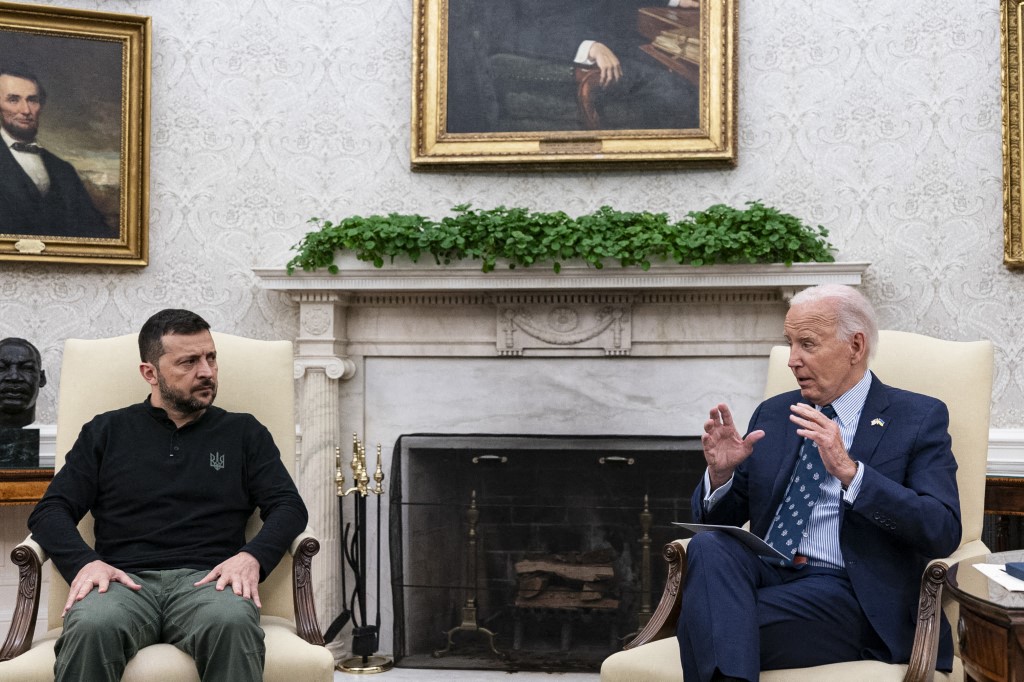In a significant policy shift, U.S. President Joe Biden has authorized Ukraine to use long-range American missiles to target military installations within Russia. This decision was confirmed by a U.S. official speaking to AFP, following a devastating missile strike by Russia that targeted Ukraine’s power grid, resulting in the deaths of 11 civilians and causing further damage to the country’s already strained energy infrastructure. Reports from major media outlets, including The New York Times and The Washington Post, indicate that this move comes in response to North Korea’s deployment of troops to assist Russia in its ongoing conflict in Ukraine, a development that has raised alarm among U.S. and allied officials.
Ukrainian President Volodymyr Zelensky has long called for the authorization to employ the Army Tactical Missile System (ATACMS) to strike Russian territories. The news of this authorization was welcomed by several nations, including Poland. Polish Foreign Minister Radoslaw Sikorski remarked on X, “With the entry into the war of North Korea troops… President Biden responded in a language that (Russian President) V. Putin understands,” emphasizing the concept of self-defense for a nation under attack.
In a more restrained response, Zelensky referred to the military’s new “long range capability” as pivotal to Ukraine’s victory plans. He acknowledged the reports of receiving approval for necessary actions but noted that actions would speak louder than words, hinting at forthcoming military engagements.
The timing of Biden’s decision coincides with the onset of a nationwide energy crisis in Ukraine following the recent Russian missile attacks. State-owned power company Ukrenergo announced emergency power cuts beginning Monday, shortly after a missile barrage led to multiple casualties and significant infrastructure damage. The attacks, which included the launch of over 120 missiles and nearly 100 drones, targeted various regions, including Kyiv, as winter approaches, heightening fears about energy shortages.
International condemnation swiftly followed the attacks, with UN Secretary-General Antonio Guterres denouncing the strikes as assaults on “energy and critical civilian infrastructure.” European Commission President Ursula von der Leyen condemned the strikes as “horrible” and reaffirmed Europe’s commitment to support Ukraine.
The ongoing conflict, now approaching its 1,000th day, raises the specter of a challenging winter for Ukrainians, already suffering from severe energy deficiencies as a result of previous Russian onslaughts that destroyed approximately half of the country’s energy production capacity.
Simultaneously, German Chancellor Olaf Scholz made headlines by reaching out to President Putin for the first time in nearly two years, urging an end to hostilities. However, Ukraine criticized this dialogue as an attempt at appeasement, labeling the recent attack as Putin’s true response to diplomatic overtures.
Scholz asserted Germany’s unwavering support for Ukraine, insisting that no decisions affecting Ukraine would be made without its involvement. However, figures such as Polish Prime Minister Donald Tusk criticized such diplomatic efforts, arguing that real support for Ukraine is needed to counteract Russian aggression. French President Emmanuel Macron echoed these sentiments, stating that Putin is uninterested in peace and is not prepared for negotiations.
As the conflict escalates, the presence of North Korean troops in Russia raises serious concerns for European security, with Western officials warning that their involvement signals Moscow’s growing desperation. Russia, for its part, claims to have successfully targeted Ukrainian military infrastructure while also reporting civilian casualties from Ukrainian drone strikes on its own territory. This complex and evolving situation underscores the urgency for sustained international support and diplomatic efforts to navigate the crisis.





